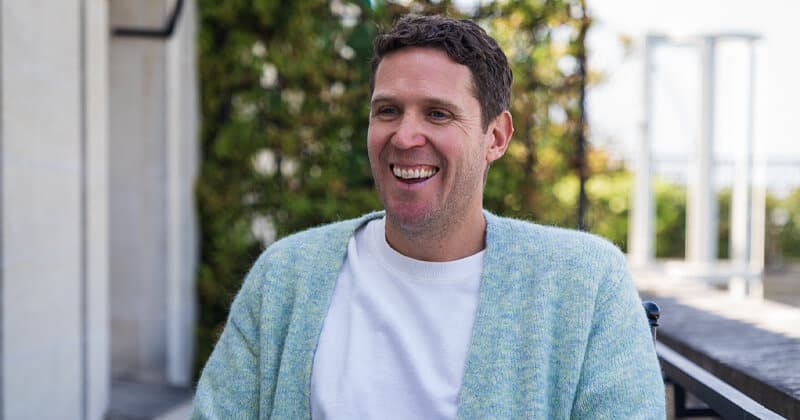
Top tennis agent Stuart Duguid has spent more than a decade working on behalf of professional tennis players. After serving with major talent agencies such as Lagardére Sports and IMG, Stuart co-founded EVOLVE, the first female-athlete-led talent agency, with longtime client Naomi Osaka in 2022. In addition to Osaka, EVOLVE represents stars Nick Kyrgios and Ons Jabeur, with Stuart playing a leading role in building authentic, strategic, and meaningful businesses around and with EVOLVE’s athletes.
Stuart sat down for a chat with the PTPA in Paris, France, to discuss empowering tennis players, the role of a players association, the future of the tennis industry, and more. You can find highlights from the PTPA’s discussion with Stuart below, or watch the full conversation here.
The PTPA is focused on safeguarding, advocating for, and empowering players on and off the court. How have you helped empower your clients to be more than “just” tennis players?
SD: Being more than tennis players is the heart and soul of transacting high level business these days. It’s not enough to be just a great player. You have to have an edge, have a message, or stand for something. In terms of empowerment, the way I approach it with my players is to let them be authentic and let them empower themselves and I will react accordingly and support the messages they want to share. The key to letting athletes be authentic is let them be themselves rather than try and manufacture something.
Your client Ons Jabeur is also a member of the PTPA’s first-ever Executive Committee. What do you think empowered and motivated her to take on that role?
SD: She’s an incredible trailblazer for women in general, but especially Arab women and North African women. To see someone like that that they can look up to is incredibly powerful. For her to take on this leadership position just adds even more gravitas to that and shows how much she cares about the sport and making a difference. Having had conversations with her, there are numerous issues that she is interested in, but one I know is at the forefront is gender equality. That’s extremely important to her, and is something she wants to dig into and lean into on the PTPA side.
Nick Kyrgios and Naomi Osaka, your other clients, are also members of the PTPA. What prompted them to want to be involved?
SD: Those two always look to the NBA to see what they’re doing, not just on the court, but also off the court. They always get it right and they always seem one step ahead. We’ve got close friends in the NBA who are obviously tied up with their players association, so we had conversations with them to learn more, how we can bring that into tennis. For Naomi and Nick, the incentive is really to give back. I think they want to make a difference for masses and for players further down the rankings that need support. While tennis is an extremely individual sport, I think they’re also very invested in the greater good for their peers.
As you mentioned, the NBA and most major sports have a players association that is core to that sport’s structure. Players associations work alongside the athletes, their agents and agencies to provide increased player support. From your point of view as an agent, what should that relationship between a players association and agents look like in order to maximize impact for the players?
SD: It’s important for agents to work together with a players association. I hope [agents/agencies] get on board as well because they are often the ones that are in the ears of players giving advice and opinions, and I don’t think there is any agenda that is separate. [The PTPA] is additive to the process of what agents do. There’s no downside to being involved, and to unifying, and to having more support and more power. I don’t see any downside whatsoever, I only see upside.
Another model that exists in most major sports, but has not existed in tennis until now, is group licensing and marketing. How do the group licensing and marketing opportunities that the PTPA and its for-profit affiliate, Winners Alliance, generate for players differ from opportunities that you and your fellow agents are creating for players?
SD: Group licensing is complementary and additive. Very candidly, from my players’ [perspectives], I don’t think it’s something they’re expecting to get rich on. It’s more a contribution to the greater good, and for those players further down the ladder. It’s certainly not impacting us in a negative way, where we feel like we won’t be able to do other stuff because we’re constrained by the group licensing – not at all… they’re such different price points but also products. I don’t see any downside, I just see it as additive to what I’m already doing.